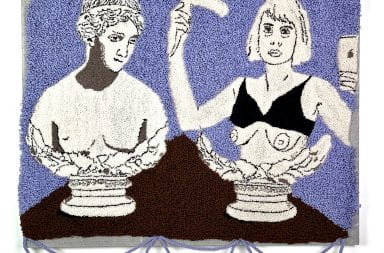How do you have a successful career without “selling out”?
That is one of the big themes that award-winning Spanish architect Borja Ferrater will address in his guest lecture at the Knowlton School of Architecture. Ferrater is a co-partner of the Office of Architecture in Barcelona.
The firm’s projects, which vary from a soccer stadium in Barcelona to high-speed train stations to interior design, have been featured all over the world, including Turkey, Morocco, Italy and Mexico, Ferrater said.
“We are not a huge firm,” Ferrater said. “We are small-staffed compared to American firms. But we are capable. Big, huge firms sometimes have to accept commercial projects that they don’t want to do. Our small size allows us to normally do the projects that we want to do.”
Ferrater’s firm is also different in that it is family-run. His father, Carlos, was already a well-known architect when he decided to start his own firm with his son, his daughter, Lucía, and son-in-law, Xavier Martí Galí.
“Historically, Spanish architecture in the ‘80s and ‘90s was really the center of a certain type of building. Borja’s father was one of the practitioners who was putting Spain on the map as a hotbed of architectural thinking,” said Andrew Cruse, assistant professor of architecture and director of the lecture series this year.

Moab’s ROCA Barcelona Gallery is one of Borja Ferrater’s firms many projects. Credit: Courtesy of Aleix Bague
Borja Ferrater’s childhood was surrounded by architecture, but he didn’t always intend to be an architect. He spent four years studying biology in the U.S. It wasn’t until he went on a trip with his father to Finland and saw the architect Alvar Aalto’s work that he realized that architecture had always been his passion.
Most of Borja Ferrater’s lecture will be about what it is like to start a successful business and the importance of maintaining authenticity.
“Our firm is young and different, but we still try to be on the edge of things,” he said.
OAB makes up for its small size by collaborating with other architecture firms that specialize in certain areas. Borja Ferrater used building a hospital as an example.
“If we are building a hospital, we will work with another firm that is specialized in hospitals. This allows our firm’s specialization to not be specialized,” he said.
The firm’s members like to think of their architecture as four legs of a table: light, materials, landscape and controlling the distribution of spaces. They consider all four necessary components in any projects. However, they prefer to not be identified by any certain style.
“Every new project is a new experience, a new adventure; we don’t believe in a brand,” Borja Ferrater said.
Cruse recommends that students go to the lecture for the international perspective that the Spanish architect brings.
“See how practices are similar or different,” he said. “What’s being built there, how architects are educated and practice as compared to the U.S.”
The lecture will be held on Wednesday in Gui Auditorium in Knowlton Hall at 5:30 p.m. All lectures are free and open to the public.


